
More than half of the world’s population, some four billion people, are participating in elections in 40 countries this year. Haggie Partners will be regularly tracking the key battleground issues in two of these contests: the US Presidential election on 7 November and the UK General Election which will take place on 4 July.
May 2024
Edition 3
Sunak fires the starting
gun on election fight
The prime minister, Rishi Sunak, informed the country on Wednesday 22 May that he had asked the King to dissolve parliament for a snap general election on 4 July. After years of Conservative prime ministers (five), Sunak’s final act is revealed.
Ahead of the six-week election campaign, there are normally several days between an election being called and parliament being dissolved. This parliamentary session will be dissolved on 30 May. During this period, known as ‘wash-up’, any parliamentary business not completed by the end of ‘wash-up’ will fall. The NatWest share sale to retail investors is one of these.
Government activity is restricted during the campaign, in what is known as the ‘pre-election period’. This is to ensure public money is not used to support the campaign of the party in power, and to maintain the impartiality of the civil service.
Along with all the usual campaign speeches, visits, and endorsements, the parties will also publish their manifestos. While there is no set publication date, parties have historically released manifestos 3-4 weeks before the election date, with Labour’s and the Conservatives’ usually coming out within a few days of each other. Party leaders will also be expected to take part in TV debates and longform interviews with several broadcasters; the first televised debate will take place on 4 June.
Election countdown
Labour will neither raise
income tax or NI – Reeves
Shadow Chancellor Rachel Reeves promised on 28 May to lead the ”most pro-growth Treasury” in history in a bid to attract business back to Britain. She has also said in an interview on Sunday with Laura Kuenssberg on the BBC, that there will be no rises in income tax or National Insurance if Labour wins the general election, although some spending cuts have not been ruled out.
On 21 May, Reeves also announced that there would be no Budget until late September to allow for the Office of Budget Responsibility to assess her plans, an unprecedented degree of influence to an unelected body.
Her speech came as more than 120 business leaders signed an open letter giving their backing to Labour. Senior figures, including the former CEOs of Heathrow, JP Morgan and Wikipedia said the party had ”shown it has changed and wants to work with business to achieve the UK’s full economic potential”. They said the public should now ”give it the chance to change the country and lead Britain into the future”.
In the shadow chancellor’s first major speech of the election campaign, she promised that a Labour government will give companies a ”bedrock of stability” in which to operate and proposed robust fiscal rules to create a “pro worker and pro-business” environment.
The speech was criticised by Reform UK and the lack of debate between the two major parties was a reason for their emergence as brand-new Conservative movement. Polling at 11%, Reform will struggle to gain seats in the new parliament, but their millions of voters may be enough to cost Conservative candidates victory in marginal seats. Liberal Democrats too, with polls suggesting 9% recorded support, may prosper through heavy targeting of seats rather than across-the-board electoral appeal.
Turning to Labour’s prospects, Reeves said: “To serve as chancellor of the exchequer would be the privilege of my life, not to luxuriate in status, not as a staging post in a career, but to serve. I know the responsibility that will come with that – I embrace it.”
She added that Labour’s pro-business pitch over the past four years “can deliver a better future for working people” and insisted Labour is the natural party of British business.
Reeves’ time as Shadow Chancellor has been notable for her courting of businesses, especially when compared with the previous Labour leadership. ”Labour’s plans for growth are built on partnership with business. It is clearer than ever that in this election, in the face of Tory chaos, stability is change,” she added.
The Labour Party begins the election campaign regarded as better for business than the Conservatives by a margin of 46% to 32%, according to a poll of 1,005 businesses by Savanta UK Business tracker in April.
Conservatives will suggest that this is reflective of them having not yet set out their manifesto for business and are pinning their hopes on appeasing the ‘grey vote’ with £2.4 billion tax cuts. Chancellor Jeremy Hunt branded inheritance tax ”profoundly anti-Conservative” but refused to be drawn on whether cuts to death duties would feature in the party manifesto. Conservatives will also be pleased that shop prices rose by only 0.6% in May, down from 0.8% in April, according to the Financial Times.
Labour’s proposition to business comprises three overarching components. First, there’s a commitment to political stability, as articulated by Reeves promising to maintain corporation tax at 25% throughout the parliamentary term, preserve investment allowances introduced by the Chancellor, Jeremy Hunt, and streamline budget statements to an annual occurrence. Secondly, Labour leader Keir Starmer praises a collaborative approach, describing it as a ”sleeves-rolled-up partnership” to address impediments to economic growth. The third feature is a comprehensive programme of supply-side reforms, with a particular focus on overhauling Britain’s cumbersome planning regulations.
In return, Labour is seeking several concessions from business. First, there’s a strong emphasis on labour-market reform, as highlighted by The Economist on 9 May. Starmer contends that the model is particularly precarious for low-income workers and contributes to stagnant productivity growth by dissuading investments in equipment and training. Secondly, there are plans to enhance individual workers’ rights, especially considering that less than a quarter of British workers are unionised.
Starmer’s six key pledges
1. Deliver economic stability
The party will have a ‘fiscal lock’ to ensure government debt falls as a percentage of GDP in the final year of a five-year forecast.
2. Cut NHS waiting times
Labour says it will fund this by tackling tax avoidance — a common promise for governments searching for an apparently pain-free way of funding a commitment without raising taxes.
3. Launch a new Border Security Command
New specialist enforcement officers, investigators and intelligence agents would also be hired using money saved from scrapping the government’s Rwanda deportation scheme.
4. Set up Great British Energy
Labour may have scrapped its plan to spend £28 billion a year on green investment but setting up Great British Energy would invest in clean energy projects and other infrastructure required to hit Labour’s aim of a carbon-free electricity system by 2030.
5. Crack down on antisocial behaviour
Through promises of extra neighbourhood policing, new penalties for offenders and a network of youth hubs, Starmer is also pledging a crackdown on antisocial behaviour.
6. Recruit 6,500 new teachers
Labour promise to recruit 6,500 new teachers in ”key subjects to set children up for life, work and the future”. The party said it will fund this through ending tax breaks for private schools, which commentators, such as the Institute for Fiscal Studies, say would raise just over £1.7 billion a year.
Key battleground issues
Geo-politics
Cyber
Climate
Economy
Risk
Geo-politics

It is unusual for US and British elections to feature geo-political debates so prominently. Sunak acknowledged that his new pitch to voters amounted to ”better the devil you know”, as he warned the world was facing ”one of the most dangerous periods we’ve ever known”. He spoke of Putin’s recklessness that ”has taken us closer to a dangerous nuclear escalation than at any point since the Cuban missile crisis”.
Meanwhile, US Republican presidential candidate Donald Trump reportedly told Jewish donors that if elected in November he would deport anti-Israel protesters and defeat the “radical revolution” he said the recent campus demonstrations across the US were about. According to the Washington Post’s account of the private fundraiser held in New York on 14 May, quoting anonymous participants, the former president also affirmed Israel’s right to continue “its war on terror” while listing his achievements for Israel during his term in office.
The US has also stepped up its trade war with China. President Joe Biden unveiled significant tariff increases on an array of Chinese imports including electric vehicle batteries, risking an election-year standoff with Beijing. “American workers can out-work and out-compete anyone as long as the competition is fair, but for too long it hasn’t been fair. We’re not going to let China flood our market.” he said.
Cyber

In recent decades, meaningful discourse surrounding cyber technology has been notably absent from election campaigns in the West. Political parties on both sides of the Atlantic tend to rally around the notion that cyber technology is vital for bolstering the economies of the US and UK, serving as a catalyst for growth. However, when it comes to drafting manifestos, party apparatchiks struggle to delve deeper into this topic.
In both the US and the UK, democracy is facing a new and largely uncontested threat – that of AI-generated content. The Conservatives are anticipated to align more closely with the Silicon Valley perspective, which prioritises concerns regarding existential risks associated with AI. In contrast, Labour appears to focus on the immediate risks associated with the misuse of AI. Labour is planning to launch its manifesto, which will include its AI strategy, within the next couple of weeks.
Climate

When launching the July election, the prime minister stated that ”climate change will be on the ballot”, in part recognising the growing threat of the Liberal Democrats, who are targeting river and sea pollution in marginal seats.
Demanding an end to the net zero terminology has prompted a rift in the UK’s climate establishment. David Wright, the chief engineer of National Grid, denounced the phrase as having low public recognition, suggesting it was “green jargon” that blocked understanding by businesses and the public.
In early May, The Washington Post reported that several senior oil executives visited Mar-a-Lago to complain to Trump about ”burdensome environmental regulations”, despite them spending $400 million on lobbying the Biden administration. Trump allegedly suggested that the oil barons raise $1 billion, secure his re-election as President, and reverse several Biden environmental policies. The executives were left ”stunned” at the former President’s brazen stance.
Biden finalised the Environmental Protection Agency rule. This will be the US’s most robust limitation on emissions from cars and trucks in a controversial acceleration of the transition to electric vehicles. In the UK meanwhile, new Green Alliance analysis claims that only half the carbon reductions legally required by 2032 are backed by UK Government policies.
Economy

The UK economy is likely to continue its slow growth in the second quarter, but at a slower rate than earlier in the year, a new survey has revealed. S&P’s purchasing managers’ index (PMI), which measures activity in the private sector, was recorded at 52.4. This was down from 54.1 in April and below the 54 expected by economists. It is said that anything above 50 indicates economic expansion. The figures are consistent with economic growth of 0.3 per cent in the second quarter.
Earlier this month and ahead of the election being called UK inflation data was released, revealing a decline to 2.3%, less of a reduction than some forecasts had predicted. This development comes as a relief for the Prime Minister, who spoke of ”brighter days ahead”. An unfortunate remark given the torrential rain in Downing Street that marked the start of the election campaign.
The Bank of England’s decision to hold base rates at 5.25% suggests again a rate cut is coming but is likely to be slow and steady, with certainly no change until 20 June. Bank of England Governor Andrew Bailey remained ”optimistic” according to newspapers.
The International Monetary Fund has upgraded its forecasts for the UK’s growth. It estimated in April that growth in 2024 would reach 0.5% – that’s now upgraded to 0.7% as expectations for 2025 also get a boost to 1.5%.
President Biden highlighted a series of positive economic indicators, including record job creation and historically low unemployment rates, to argue that the economy has significantly improved under his leadership. Despite this, a Reuters poll in April revealed a stark contrast, with 41% of respondents favouring Trump over Biden in handling the economy, compared with 34% supporting Biden. In the US the consumer price index fell to 3.4% in May.
Risk

Given Trump’s poll lead makes his return to the White House a serious prospect, Labour shadow foreign secretary David Lammy has succeeded in securing time with former CIA director Mike Pompeo, Sen Lindsey Graham and Trump’s campaign manager Chris La Civitas to address key political risk issues. Lammy has also been spending recent months building links with the Biden administration making some six visits to Washington, including with National Security Advisor Jake Sullivan, who he has now met twice.
In April, leading insurer Allianz outlined the ramifications of a political shift to the right in the forthcoming elections to the European Parliament in June. “They fundamentally change societies and public attitudes and make the next electoral shift to the centre or left seem drastic, creating the potential for schisms and potentially violent responses from those who feel underrepresented by a regime change.”
Allianz anticipates a rise in incidents related to environmental activism and terrorism threats. Consequently, businesses are expected to encounter heightened challenges in the coming years, further emphasising the need to mitigate these evolving risks.
Polls
Labour continues to hold a strong lead in the first national election campaign poll. According to a YouGov/Times voting intention poll, the Conservatives are at 22% (up 1% from the previous poll on 21-22 May), while Labour stands at 44% (down 2%). Reform UK has increased to 14% (up 2%), the Liberal Democrats remain unchanged at 9%, and the Greens have decreased to 6% (down 1%).
In the US, polls show Trump and President Biden in a close race, with Trump at 46% and Biden at 45%, both within the margin of error.
President Biden continues to face low support among young, Black, and Hispanic voters, which are crucial in swing states. “While the press doesn’t write about it, the momentum is clearly in our favour, with the polls moving towards us and away from Trump,” Biden said.
30 May 2024 from The Economist
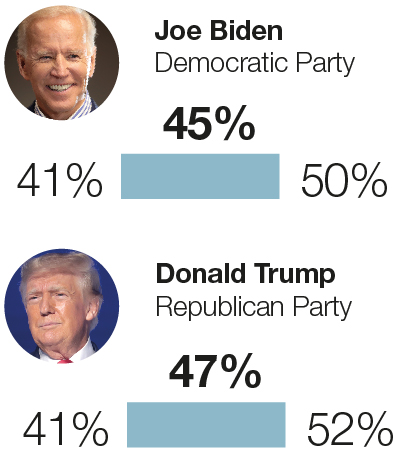
29 May 2024 from BBC News
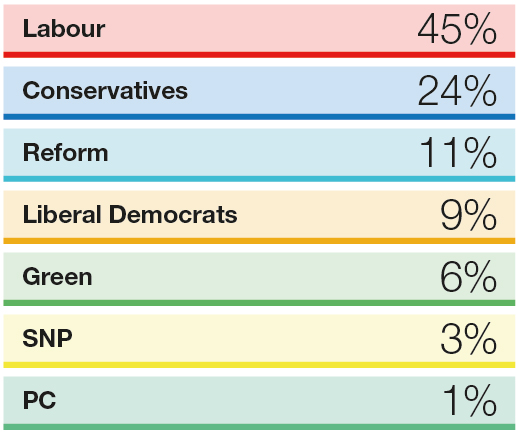
Manifesto watch
Labour has completed its manifesto, or programme for government, but has not yet announced a publication date, according to the Financial Times. Party insiders describe it as ‘a reasonably slim document.’ The manifesto was compiled by Rav Athwal, a former academic and Treasury official. Meanwhile, the Conservative manifesto is described as ”in good shape” and is expected to be published early in the campaign. It was written by policy advisers Will Tanner and James Nation. Tanner is reportedly responsible for the Conservative commitment to a national service programme for teenagers.
Click on the links to read the latest manifesto related information
Women to watch
Donald Trump may look to bolster his campaign by selecting a woman as his running mate given polling data highlighting his divergence in support between men and women. He spoke over the weekend about his wish for Nicki Hayley to be ”on our team in some form”. Here are two names circulating in discussions about his vice president shortlist:

Kristi Noem
Kristi Noem epitomises the archetype of a MAGA woman. In 2020, she attracted national scrutiny for her swift relaxation of COVID restrictions compared with other governors. Noem has been at the forefront of culture-war issues, issuing orders such as banning ‘critical race theory’ from being taught in schools and taking aim at policies affecting transgender individuals. Her actions have solidified her reputation as a staunch advocate for conservative values.
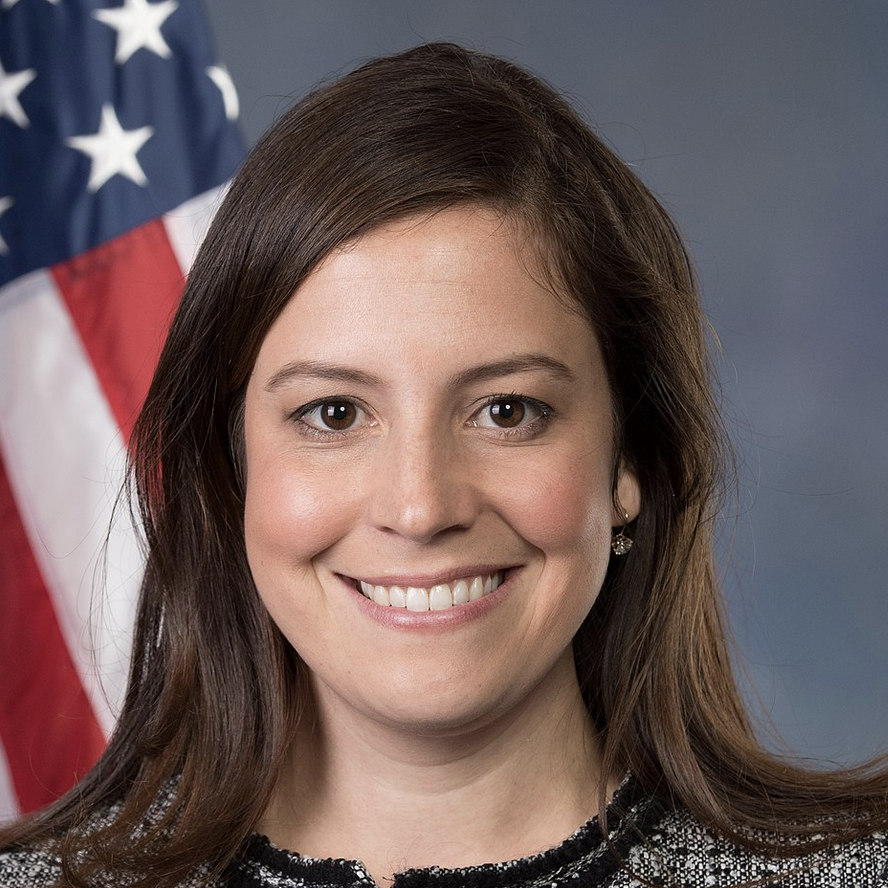
Elise Stefanik
Stefanik, a New York congresswoman, is another fiercely loyal Trump ally and rising star in the Republican Party. She could help Trump do the parts of the job that don’t interest him, such as working with Congress and articulating the Republican party platform. Adding a 39-year-old woman to the Republican ticket could allay any concerns voters — and particularly suburban women — might have about re-electing a 77-year-old man with well publicised controversial views. Stefanik was also a member of Congress who voted not to certify Biden’s 2020 election win on January 6, 2021, the day of the Washington riot by Trump’s supporters.
Swinney elected First Minister of Scotland
In May, John Swinney was elected leader of the SNP and first minister of Scotland, home of the second largest financial services sector in the UK and 8000 jobs in insurance. Swinney was the only candidate to stand for leadership which, he said, “demonstrates the Scottish National Party is now coming back together again”. Kate Forbes, who lost the 2023 leadership contest to Humza Yousaf, was appointed deputy fist minister.
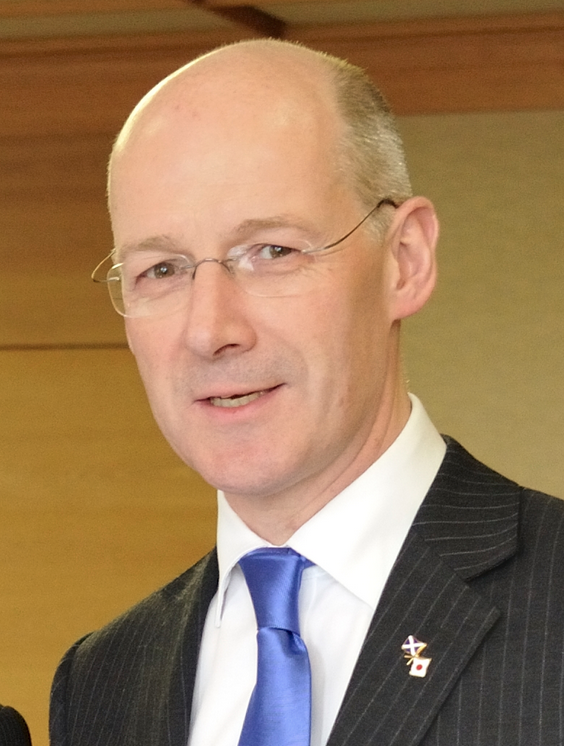
Social media watch
According to The Guardian, there has been a surge in political marketing groups in the US that leverage lesser-known social media users, typically those with hundreds to tens of thousands of followers. Both left-and right-wing groups believe that ‘microinfluencers’ are trusted figures who can effectively and inexpensively reach younger voters and minority groups, including Black and Latin American communities.
The Biden campaign kicked off its journey to Atlanta—the site of the first debate—with a new advertisement titled ‘Snapped’, narrated by actor Robert De Niro. This ad, released on Friday, will be broadcast nationally, locally, and digitally across key battleground states. President Biden’s campaign strategy emphasises ‘content and meme pages’ and involves working with podcasters, digital-media firms, and social-media meme pages. Meme is the term which describes short videos or images intended to be humorous.
In addition to the Atlanta debate next month, Biden and Trump have agreed to a second debate in early September on ABC News. The former president also challenged Biden to a third debate on Fox News in October, but Biden’s campaign declined, citing Trump’s history of manipulating debate arrangements.


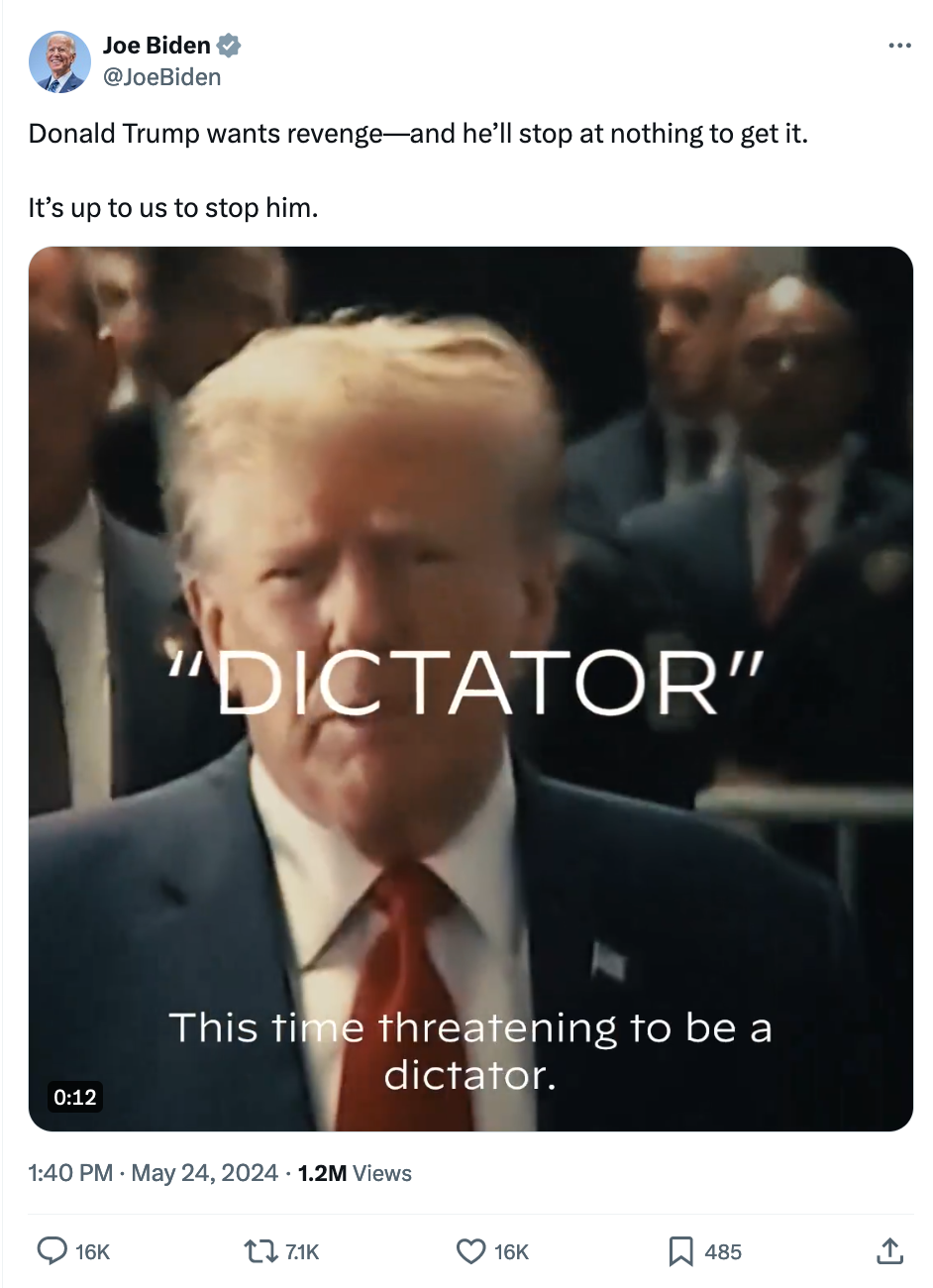
Election campaign watch
27 June: The first Presidential debate will be hosted by CNN.
15–18 July: The Republican National Convention is scheduled to be held in Milwaukee.
19–22 August: The Democratic National Convention is scheduled to be held in Chicago.
10 September: The first Presidential debate will be hosted by ABC
16 September: The second presidential debate is scheduled to be held at the Texas State University in San Marcos, Texas.
25 September: The only vice presidential debate is scheduled to be held at the Lafayette College in Easton, Pennsylvania.
5 November: Election Day (the Tuesday after the first Monday of November).
30 May: Dissolution of Parliament
4 June: First televised debate between Rishi Sunak and Keir Starmer
4 July: General Election
Get in touch
Cressida.Tarver@haggie.co.uk



